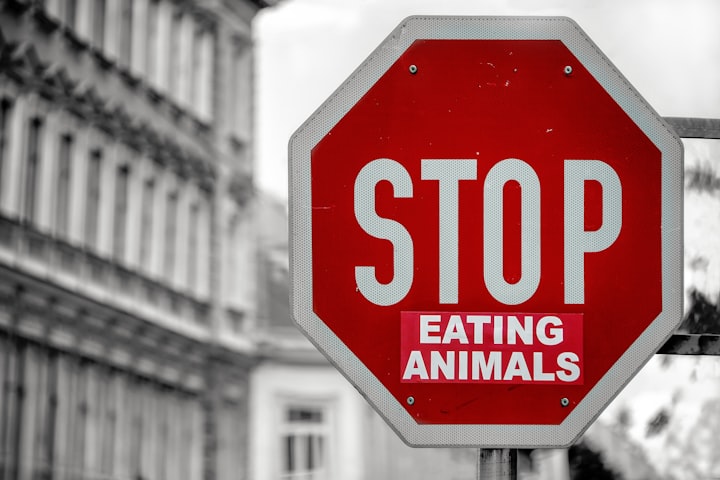What's Really Extreme?
You know you’re running up against powerfully ingrained norms when a simple sticker gets your movement labelled as extreme.

You know you’re running up against powerfully ingrained norms when a simple sticker gets your movement labelled as extreme. Usually when we hear about extremism, we think of people who use violence to further their aims. When you’re vegan, all it takes is a sticker.
People shopping at a Woolworths store in Melbourne found stickers had been applied to meat products which read ‘Warning: this package contains the dead body of someone who wanted to live’ and the reporting on this in New Zealand’s media has been expectedly dismal.
NZ Herald’s article (taken from news.com.au) included a selection of social media responses to the story. One man invokes the common ‘but don’t plants have feelings too’ fallacy. No response to this or explanation of the fallacy is given. Another person wrote ‘#somethingnotsomeonelookitup’ in relation to the stickers’ wording. Of course, the use of the word ‘someone’ does not mean that animals are the same as humans, or even equal to humans — it simply reflects their status as sentient individuals who warrant our moral consideration, and not commodification.
Then the article itself goes on to say, ‘the message of the stickers is clear: animal lives are equated with human lives’ and quotes a social media user who said ‘human life comes first.’ But how does avoiding buying animal products, and encouraging others to do the same equate animal lives with human lives? How does it put human life behind animal lives? Vegans aren’t dying due to their avoidance of animal products. I’m sure practically every vegan would kill an animal in a situation where they had to to save their own lives. It’s because they’re not in such a situation that they are unable to justify the use of animal products, as using them is done purely for pleasure or convenience. It’s not about putting animal lives on an equal footing with human lives, it’s about considering animal lives as more valuable than a temporary, particular kind of flavour experience.
Another article described the shoppers who encountered the stickers as shocked. Surely less shocked than they might be if they’d watched a film like Dominion and saw where that fleeting meal comes from. Because what is truly extreme? A sticker, a piece of adhesive backed paper which can be removed and can’t stop someone from picking up the product it’s attached to, taking it to the checkout and buying it? Or the enslavement, torture and killing of billions of sentient beings for food that we don’t even need to lead healthy or happy lives? Every successful social justice movement had people describing their non-violent activists as extreme. There were people who thought civil rights campaigners were extreme for organising sit-ins, and peaceful protests. People who thought people campaigning for women to have the right to vote were extreme. People who thought boycotting slave produced sugar, or campaigning for the abolition of slavery was extreme.
Another point worth noting is that these articles referred to the sticker tactic as ‘meat shaming.’ This doesn’t make sense, either. Shaming someone for a choice they’ve made involves some sort of moral judgement. When we say someone is being slut shamed, they’ve been told their sexual behaviour degrades their worth or morality. When someone is fat shamed, their character is impugned; surely if they had more willpower, surely if they were less lazy, they’d lose weight. Yet these stickers didn’t cast judgement upon the person picking up the package of meat, their message was more of a ‘hey, fyi, here’s something you might wanna think about.’
You’ll see a lot of people who say ‘I have no problem with people being vegan so long as they let me eat what I want.’ But they’ll regard the most mild criticism or provision of information from a vegan as evidence they’re not being allowed to eat what they want. But the truth is we can’t stop them buying whatever they’re gonna buy. We can’t be present in their homes, and prevent them throwing a steak on the barbecue. Offering up information, asking someone to think critically and logically about their choices isn’t extremism, and it isn’t forceful. We should laugh at such overblown articles and point out their ridiculousness. We should never let it stop us telling the truth or asking people to consider whether they’re truly living in alignment with their moral values.
About the Creator
Emma Gorowski
I write mainly about animal rights philosophy and veganism, while dabbling in travel, psychology, self improvement, and politics. I'll also share plenty of delicious plant-based, vegan friendly recipes.






Comments
There are no comments for this story
Be the first to respond and start the conversation.